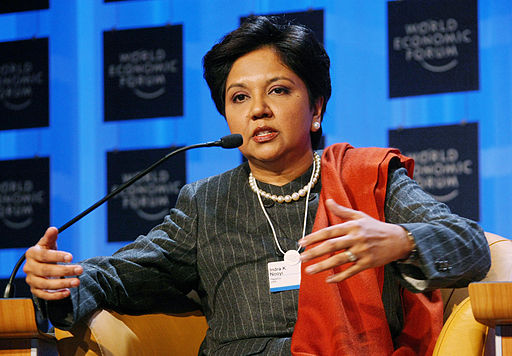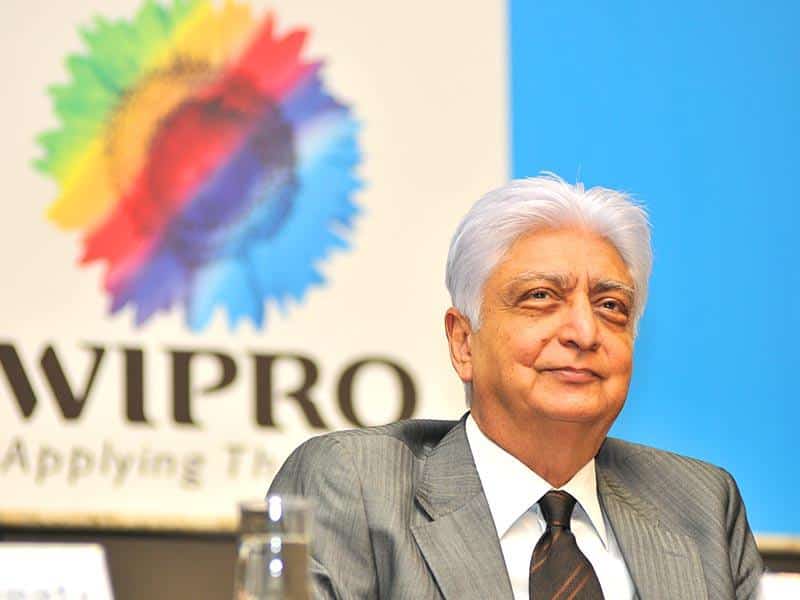Leadership is often seen as an innate trait, with some people simply being born leaders. However, inspirational leadership is a skill that can be learned, cultivated, and refined. What makes a successful leader stand out from the crowd? How do these leaders drive change, inspire others, and achieve success in their fields? In this blog, we’ll explore the key traits of inspirational leaders and provide practical examples to help you understand the factors that lead to great leadership.
Table of Contents
Secrets of Inspirational Leadership

1. Vision and Clarity:
Successful leaders have a clear vision of what they want to achieve. This vision serves as a guiding light, inspiring their team members to work towards a common goal. It’s this clarity that helps others see the bigger picture and find meaning in their work.
2. Leading by Example:
Leading by example is a timeless trait of influential leaders. When leaders embody the values and behaviors they expect from their team, it fosters trust, respect, and a sense of unity.
3. Effective Communication:
Communication is the cornerstone of leadership. Exceptional leaders are adept communicators, capable of not only expressing their ideas clearly, but also listening actively to their team’s concerns and ideas.
4. Empathy and Emotional Intelligence:
Leaders who inspire and influence understand the power of empathy. They can connect with the emotions and needs of their team members, fostering strong relationships through emotional intelligence.
5. Decisiveness:
Successful leaders are decisive; they make well-timed decisions and aren’t paralyzed by indecision. This ability to act decisively instills confidence in their team, especially during uncertain times.
6. Adaptability:
In a constantly changing world, adaptability is a crucial trait. Leaders who can pivot and adjust their strategies when necessary are more likely to succeed and inspire others to do the same.
7. Delegation:
Leaders know they can’t do everything themselves. They delegate responsibilities and empower team members to take ownership of their roles. This not only relieves the leader’s workload but also encourages team growth and development.
8. Accountability:
Accountability isn’t just about holding others responsible; it starts with leaders holding themselves accountable for their actions and decisions. This sets the standard for the entire team.
9. Continuous Learning:
Great leaders are lifelong learners. They stay current in their field and adapt to new trends and technologies, setting an example of the importance of growth and development.
10. Building and Developing Teams:
Successful leaders recognize the value of assembling and nurturing high-performing teams. They identify and cultivate the strengths of each team member, fostering a culture of collaboration and growth.
11. Resilience:
Setbacks are inevitable, but resilient leaders view them as opportunities for growth. They maintain a positive attitude and bounce back stronger, motivating their team to do the same.
12. Integrity and Ethics:
Ethical behavior is fundamental in leadership. Trust and respect are built on the foundation of integrity. Leaders who consistently demonstrate honesty and uphold their values inspire others to do the same.
13. Inspiring and Motivating:
Great leaders motivate their teams by showing appreciation, providing constructive feedback, and recognizing individual and collective achievements. This creates a positive and motivated work environment.
14. Long-Term Perspective:
Exceptional leaders focus not only on short-term results but also on the long-term sustainability of their organizations. They make decisions that benefit their team and organization in the years to come.
15. Networking and Relationships:
Building a strong network and maintaining positive relationships with peers, mentors, and industry professionals can provide valuable support, insights, and opportunities for collaboration.
16. Self-Care:
Leaders prioritize self-care because they understand that a healthy leader is more effective. They manage stress, maintain work-life balance, and encourage their team to do the same.
17. Humility:
Humble leaders acknowledge their limitations, learn from their mistakes, and seek input from others. This openness and humility foster a culture of continuous improvement and innovation.
18. Charisma:
While not essential for all leaders, charisma can be a powerful tool. Charismatic leaders often possess an infectious enthusiasm that draws people to their cause and inspires them to achieve greatness.
19. Commitment to a Cause:
Leaders who are deeply committed to a cause or mission inspire unwavering dedication from their followers. Their passion is contagious, driving the team to go above and beyond.
The Role of a Business Strategist in Leadership

A business strategist plays a crucial role in guiding companies through periods of transformation, growth, and sometimes even crisis. They are the masterminds behind many business decisions, including market expansion, product development, and cost optimization. They analyze data, foresee challenges, and help craft actionable plans that bring a company’s vision to life.
One such strategist is Hirav Shah, a top business strategist in India and the USA, known for turning around businesses and driving significant growth. As the founder of Bizz6, the world’s first business hub that helps diagnose, transform, accelerate, exit, flip, and validate companies, Hirav Shah has built a reputation as a value accelerator. He has authored 18 business books, many of which became bestsellers. He’s played an instrumental role in turning around many struggling businesses, increasing profitability, and guiding entrepreneurs towards success.
A business strategist’s role goes beyond just planning; they must also ensure seamless execution and consistently reassess strategies to ensure that the company remains agile and competitive in a dynamic market.
Examples of Strategy in Action:

Nike’s Market Domination: Phil Knight and the leadership at Nike made key strategic decisions early on that ensured the company’s dominance in the sportswear market. By aligning their product offerings with iconic athletes and promoting a culture of innovation, Nike established itself as a global leader.
The Starbucks Growth Story: Howard Schultz, CEO of Starbucks, expanded the company globally by focusing on high-quality coffee, a strong brand identity, and a customer-first experience. He applied strategic principles that blended market research with a vision to offer a ‘third place’ between home and work.
Pioneering Leadership: Inspiring Examples from Indian Corporates
Ratan Tata: Transformational Leadership

Ratan Tata led Tata Group with vision and innovation, steering it towards global success. Notable for acquiring Jaguar Land Rover.
N. R. Narayana Murthy: Visionary Leadership

Co-founder of Infosys, Murthy exemplified ethical leadership, emphasizing values and building a globally respected IT company.
Aditya Puri: Strategic Leadership

As HDFC Bank’s CEO, Puri’s strategic acumen led to consistent growth, making it one of India’s leading financial institutions.
Mukesh Ambani: Entrepreneurial Leadership

Ambani transformed Reliance Industries, diversifying into telecommunications with Jio, showcasing bold and entrepreneurial leadership.
Indra Nooyi: Inclusive Leadership

Former PepsiCo CEO, Nooyi focused on diversity and sustainability, demonstrating how inclusive leadership can drive corporate success.
Azim Premji: Philanthropic Leadership

As Wipro’s leader, Premji blended business success with philanthropy, establishing the Azim Premji Foundation for social development.
These leaders from Indian corporates showcase various facets of inspirational leadership, including vision, ethics, strategy, entrepreneurship, inclusivity, and philanthropy.
The Calculation of Leadership Impact:

It’s important to understand that leadership’s impact can often be measured by both quantitative and qualitative factors. Some calculations can include:
- Revenue Growth: A leader’s ability to steer a company toward increased revenue over a period of time.
- Employee Retention Rates: The level of employee satisfaction and the ability to retain top talent.
- Market Share: How a company’s market position has improved due to leadership decisions.
- Innovation Rate: The percentage of new products or services launched that contribute to the business’s success.
For example, under Hirav Shah’s strategic guidance, several companies he worked with experienced a significant increase in revenue by as much as 40% in under a year. Additionally, businesses he has helped turnaround report employee retention improvements of 25%-30% in just 6 months.
What makes an inspirational leader? -Ask Hirav

Q1: What makes an inspirational leader?
An inspirational leader is someone who has a clear vision, is resilient in the face of adversity, connects emotionally with others, fosters innovation, and is a strategic thinker.
Q2: How does a business strategist contribute to leadership?
A business strategist helps shape a company’s vision by identifying growth opportunities, mitigating risks, and ensuring successful execution of strategies. They play a key role in guiding business leaders through challenges and ensuring long-term success.
Q3: Can leadership skills be learned?
Yes, leadership skills can definitely be developed through practice, education, and experience. Inspirational leadership requires continuous learning, self-awareness, and adaptability.
Q4: How can a leader inspire their team?
A leader can inspire their team by clearly communicating their vision, encouraging open communication, leading by example, offering recognition, and creating an environment where innovation and creativity are encouraged.
Q5: How important is emotional intelligence for a leader?
Emotional intelligence (EQ) is crucial for leadership as it helps leaders manage their own emotions and understand the emotions of their team members. Leaders with high EQ build trust and improve team collaboration, leading to better outcomes.
Conclusion
The qualities of successful leaders go beyond just technical skills. Inspirational leaders possess a combination of vision, resilience, emotional intelligence, strategic thinking, and the ability to inspire innovation. Whether in a small startup or a multinational corporation, these leaders have a transformative impact on their organizations, guiding them to success through tough times and leveraging opportunities for growth.
Incorporating the insights of business strategists like Hirav Shah, who has a track record of guiding companies to increased profitability, is essential in enhancing a leader’s effectiveness. His innovative approach, as seen in his work with Bizz6, empowers leaders to make informed, strategic decisions that drive business growth and success.
Great leaders don’t just manage—they inspire, transform, and lead their teams to greater heights.











